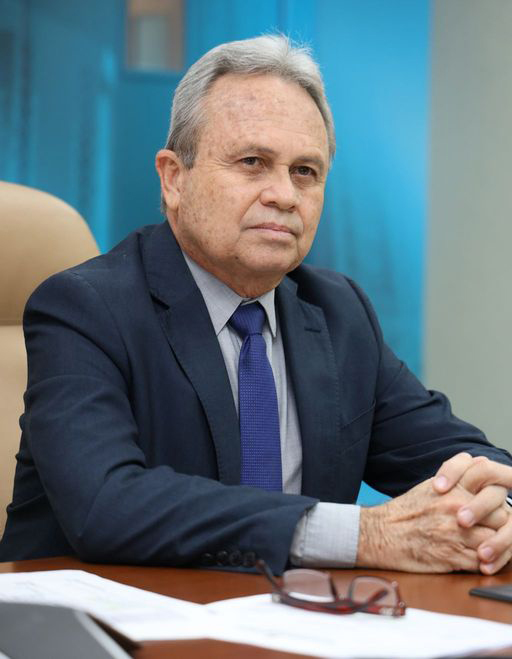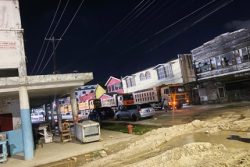(Trinidad Guardian) Minister of Finance, Colm Imbert, said yesterday that the foreign exchange window opened by the Exim Bank for wholesale importers of basic foods and pharmaceuticals during the COVID-19 pandemic was a temporary initiative.
In a news release yesterday morning, Imbert said, “The addition of a second forex window at the Exim Bank for essential imports during the COVID-19 pandemic cannot create a situation where, four years later, the Government is being held liable by certain private sector businessmen for the items they ordered and received without paying for them.
“Further, the public should not be held to ransom with a threat of increased prices for the restructuring and rationalisation of a service that was introduced as a temporary measure during the COVID-19 emergency, and which it was well known was always subject to periodic review.”
Imbert made the points apparently in response to an article in the last Sunday Express, which quoted some anonymous businessmen as saying they received between US$350,000 and US$400,000 a month from the Exim Bank, and the last time there was a release was about two months ago.
“We are sending out e-mails and they (Exim Bank) are saying they are awaiting for the Minister of Finance to release funds. It all circles back to the Minister of Finance,” a businessman said.
In a news release, Imbert referred to his budget speech for the 2025 fiscal year, in which he said, “
“Since April 2020, 110 distributors of essential goods such as basic foods and medicines accessed the Essentials Forex Window, which allocated US$1.18 billion to purchase these key staples. This facility has mitigated the significant risk of national shortages of basic items and is geared at companies that have an existing or previous history of importing approved essential items. In this process applicants submit their financial statements, as well as Know Your Client – KYC, documentation and projected trade payables to be enrolled.”
Imbert said once enrolled in the forex window facility, clients submit their trade invoices together with the requisite TT dollars. Subsequently, the Exim Bank wires US dollars directly to the international suppliers for settlement. The local company does not receive US dollars directly.”
“This arrangement was a temporary one, put in place to ensure the citizens of the country had access to all of its essential items in terms of food, medicine and safety supplies during a pandemic. It is not and was never intended to be a permanent entitlement and prior to this arrangement, all importers obtained their forex from their respective commercial banks.
“This facility, which gave them preferential access to forex was created to ensure the survival of our citizens during the COVID-19 period,” Imbert said in the news release.
In an article yesterday, the Express quoted Rajnanan Ramsaran, owner and founder of Ramsaran Dairy Products, who sent a ten-page letter dated October 18, 2024, to the International Monetary Fund’s (IMF) executive director raising an alarm over the non-existence of records of policies with respect to forex.
In subsequent letters, Ramsaran also wrote to Auditor General Jaiwantie Ramdass requesting urgent action, and to Central Bank governor Dr Alvin Hilaire asking for information on forex distribution.
Yesterday on X, formerly known as Twitter, Imbert accused the Express of “facilitating a campaign of destruction that the IMF should manage and control the distribution by the Central Bank of the Government’s foreign exchange.
Peru to seek international partners for $10 bln coastal rail project
CHANCAY, Peru , (Reuters) – Peru will pitch a partnership to foreign governments to build a $10 billion rail project as part of a major development plan centered on the soon-to-be inaugurated Chancay port, the government’s transportation minister said yesterday.
The project involves the construction of two railways, one connecting the capital Lima south to the city of Ica, and the other with the city of Barranca in the north, Transportation Minister Raul Perez said during a press conference in Chancay, on Peru’s central Pacific coastline.
Perez did not give more details on how the rail project will serve the port.
The government plans to pitch it to officials from China, the United States, Britain, Canada, France and Japan, when representatives meet in Lima next month for the Asia-Pacific Economic Cooperation summit.
The Chancay port, which authorities hope will become a major shipping hub for South America-Asia trade, will be inaugurated in mid-November and begin container shipping to Shanghai shortly afterwards.









